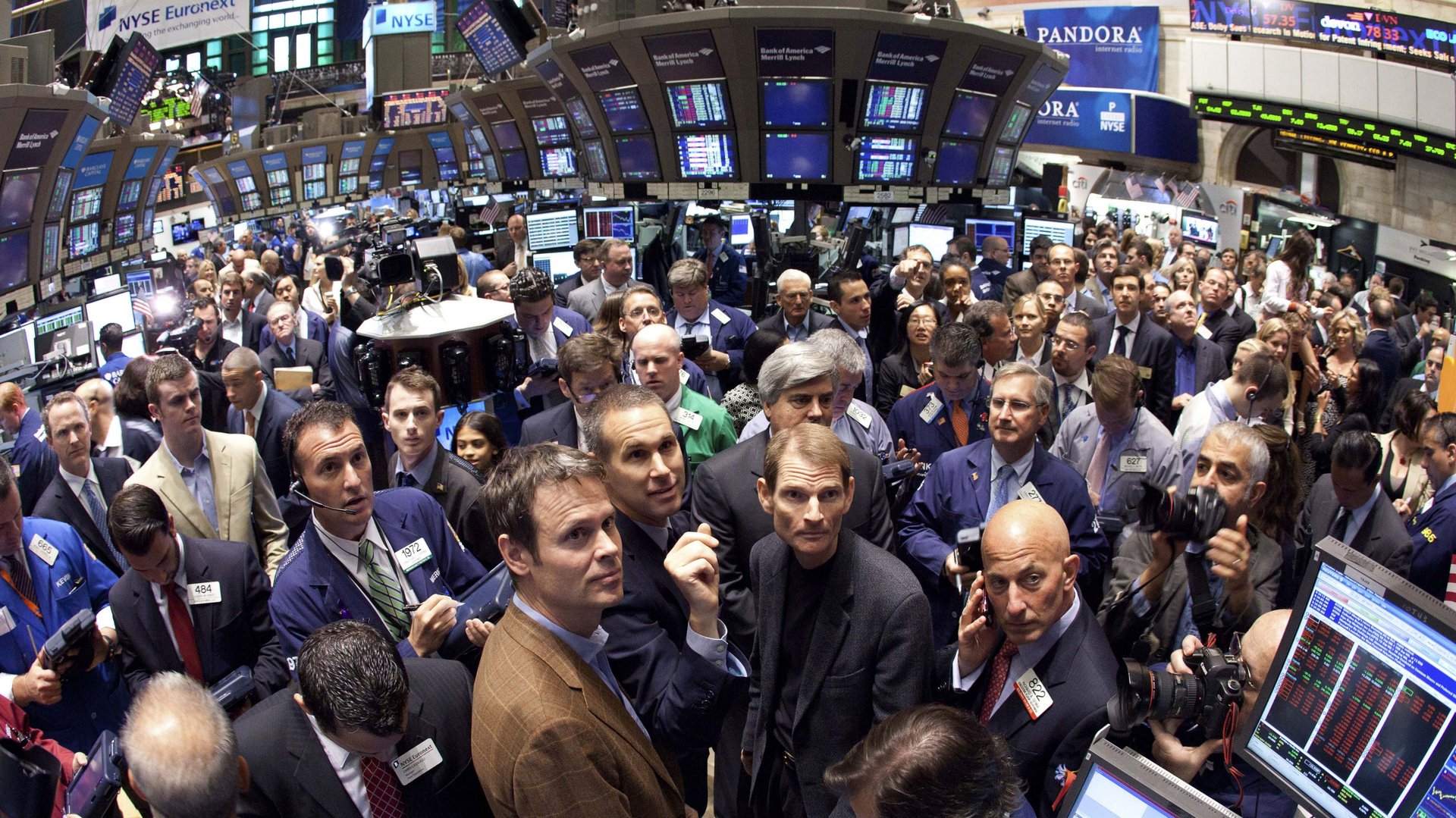The death of equities: New York Stock Exchange sold for $8.2 billion
Atlanta-based upstart IntercontinentalExchange (ICE) just confirmed that it will buy NYSE Euronext, owner of the New York Stock Exchange, in an $8.2 billion deal. The acquisition ends 220 years of independence for NYSE and is a turning point for 12-year-old ICE, which until now has focused on commodities.


Atlanta-based upstart IntercontinentalExchange (ICE) just confirmed that it will buy NYSE Euronext, owner of the New York Stock Exchange, in an $8.2 billion deal. The acquisition ends 220 years of independence for NYSE and is a turning point for 12-year-old ICE, which until now has focused on commodities.
ICE is paying $33.12 for NYSE Euronext, a 38% premium on Wednesday’s closing price, and said it would explore an IPO for the Euronext portion of the business, which operates exchanges in France, the Netherlands, Belgium, and Portugal.
Last year ICE and Nasdaq OMX Group attempted a hostile takeover of NYSE Euronext but were blocked by US regulators, who feared a single company owning both NYSE and Nasdaq, the country’s two largest stock exchanges.
There are any number of ways to make sense of this deal. For one thing, in the coming decades the short-hand for global finance may well shift from Wall Street to Peachtree Street, as ICE is based in Atlanta, Georgia. (Atlanta?!?) In fact, any other number of cities in the US have fairly substantial claims on being at least as important to the trading of financial instruments as New York. Foremost among them may be Chicago, home of the massive CME Group, which swallowed up the New York Mercantile exchange in 2008. But also Kansas City, Mo., home of the BATS Global Markets, a giant electronic stock exchange that had to squelch its own initial public offering earlier this year after a hugely embarrassing trading glitch at the launch of its own stock — on its own exchange.
Of course, you could make the case that this is yet another example of the rise of electronic trading. But it’s not as if the NYSE really depends on all the guys you see on CNBC puttering around in blue jackets. By and large, NYSE Euronext is an electronic exchange in its own right. No, what this deal underscores is just what a dog the stock trading business has become. And that seems to be a ubiquitous theme on Wall Street with major banks dumping equities traders, hedge funds avoiding stocks and retail investors continuing to shun them too.
NYSE has had trouble gaining traction in other highly profitable areas such as derivatives trading. Since the exchange was founded in 2000, derivatives have become a focus for ICE, which has its roots as an electronic exchange for energy and metals. But markets are cyclical right, perhaps ICE is just shrewdly buying NYSE’s equities business on the cheap? DealBook’s Michael De La Merced suggests otherwise:
While the New York Stock Exchange, with its opening bell and floor traders, has been the public image of a stock market for two centuries, it is NYSE Euronext’s businesses in the over-the-counter trading of derivatives – including the Liffe market in London – that appear to be the main attraction in the merger talks.
If we were contrarians, all of this Death of Equities talk — reminiscent of the 1979 Businessweek cover that nearly nailed the bottom of the markets before surges of the 1980s and 1990s — might get us a little more interested in the markets.